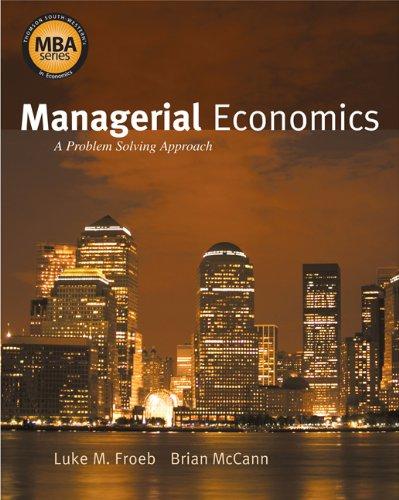Question
1) Explain what is the source of surplus and what it has to do with the conflict over the surplus. In other words, why a
1) Explain what is the source of surplus and what it has to do with the conflict over the surplus. In other words, why a capitalist (owner of the production means) can sell a commodity at price higher than the marginal cost and why it creates a conflict over the surplus.
2) For political economists preferences are mostly: which choices for this question are correct
a) reciprocal.
b) exogenous.
c) endogenous.
3) In terms of the principle of limited liability, which of the following statement is not true?
a) Stockholders would risk only the dollar amount of value of the stock but would not incur any legal responsibility beyond that.
b) The Introduction of limited liability indicates that the development of the capitalist economy Inspired capital owners to press for changes in the rules of the game.
c) if the corporation went bankrupt, stockholders need to help pay the debts of the corporation.
d) The Introduction of limited liability indicates that government has the power to alter the conditions under which businesses operate.
4) From the perspective of political economy, how would you understand the concept of class? which is correct
a) Class relationships are hierarchical, or vertical. Thus, the group on top is better people or more productive.
b) A class can be defined by its status, the income of its members, or by the social esteem that others may attribute to its members.
c) The Interests in producing and controlling classes are always in conflict as a gain for workers will show up as a loss for employers.
d) A class is a group of people who share a common position in the economy with respect to the production and control of the surplus product.
5) Over the years the government-business connection has increasingly come to dominate the triangle (the government, private businesses, and the people). Which of the following statements does not show this idea? which is correct
a) Time after time bidding for government contracts allow a larger number of private business to participate which promote bid-rigging. This discourages keeping quality up and cost down.
b) Firms obtain tax breaks or more favourable rules, raising their profits and the war chest they use for campaign donations, hiring lobbyists, and operating a revolving door.
c) Instead of producing products and services of better quality, firms spend more money on influencing government (rules) to increase their profit.
d) The burden of taxes has shifted from corporations and the wealthy to working households, partly through the channel of government contracting with private businesses.
6) Consumption of the producer at a customary standard of living = necessary product - replacement of capital goods (depreciation) and materials. is it true or false.
7) Which of the following statement is not the central idea of the relationship between the government and the economy? which is correct
a) Capital owners and labour (or the public) each try to influence government policy to shift the distribution of income, wealth, and welfare in their favour.
b) The government's activities have consequences for the distribution of income, wealth, and welfare; but the economy also affects the government.
c) A democratic government should manage efficiently the public finance for which public companies should give profits
d) A democratic government can ideally be thought of as a process in which the people collectively provide for their own welfare.
8) Which of the following examples show the impact of ISDS (Investor-state dispute settlement)? which is correct
a) Canada had to pay a $13 million settlement to U.S. chemical manufacturer Ethyl Corporation, whose fuel Canada had decided to ban due to its environmental toxicity.
b) The UK nationalized coal companies and France nationalized the Renault auto company after World War II.
c) Oll firms drilling in a certain territory in eastern Canada must turn 25% of the discovered oil to PetroCanada, a "crown corporation".
d) Mexico expropriated American oil companies' operations in 1938.
9) What option is not the potential reason that shifted the tax burden from corporations and wealthy households toward the middle class and poor households? which is correct
a) The incomes of the middle class and poor households have advanced dramatically since World War II.
b) The government's principal source of revenue is the personal income tax.
c) The increasing business lobbying to government and the business funding donations to political champagnes.
d) The rich increasingly moved their wealth and income to tax havens and paid less tax.
Step by Step Solution
There are 3 Steps involved in it
Step: 1

Get Instant Access to Expert-Tailored Solutions
See step-by-step solutions with expert insights and AI powered tools for academic success
Step: 2

Step: 3

Ace Your Homework with AI
Get the answers you need in no time with our AI-driven, step-by-step assistance
Get Started


